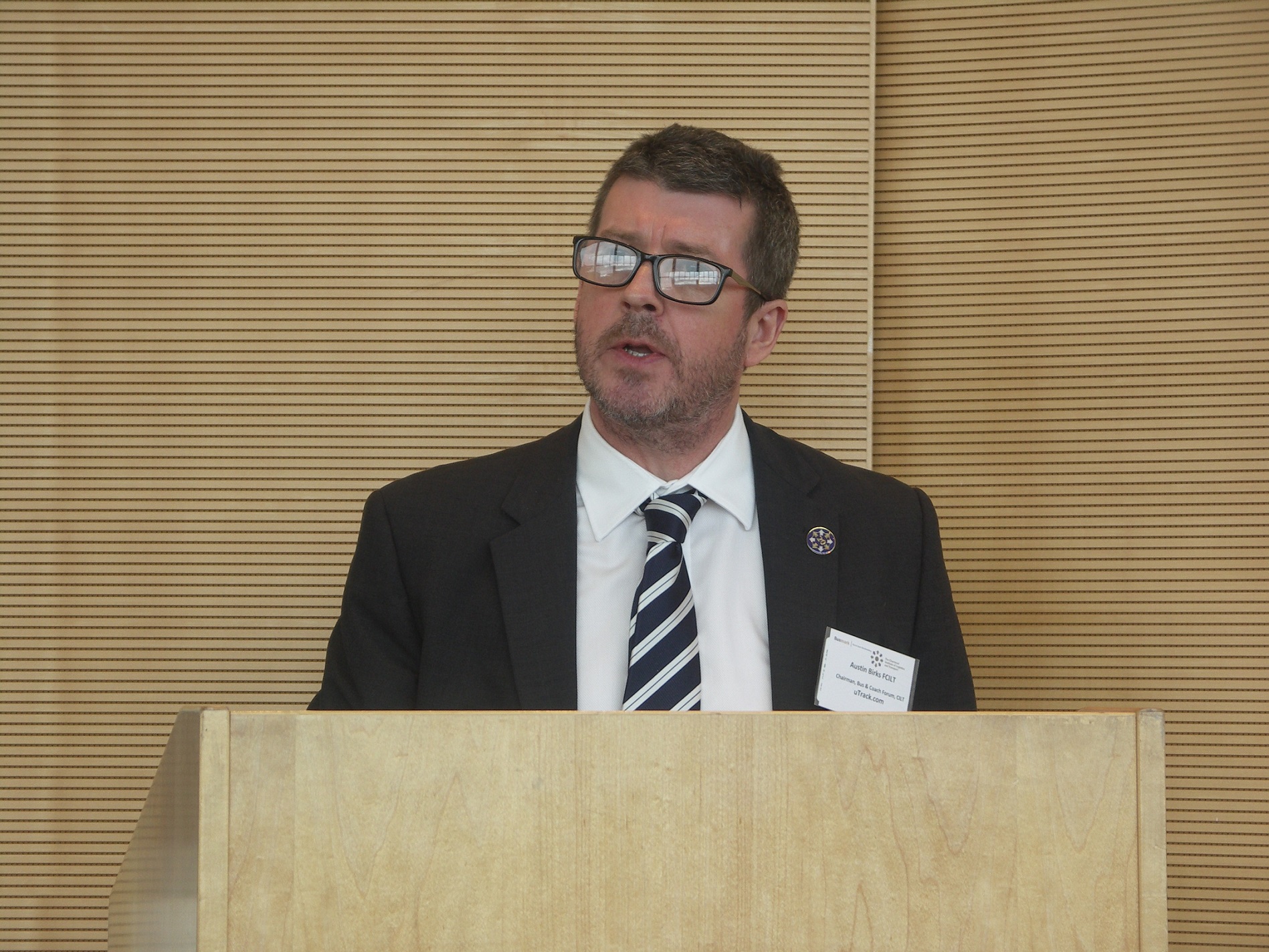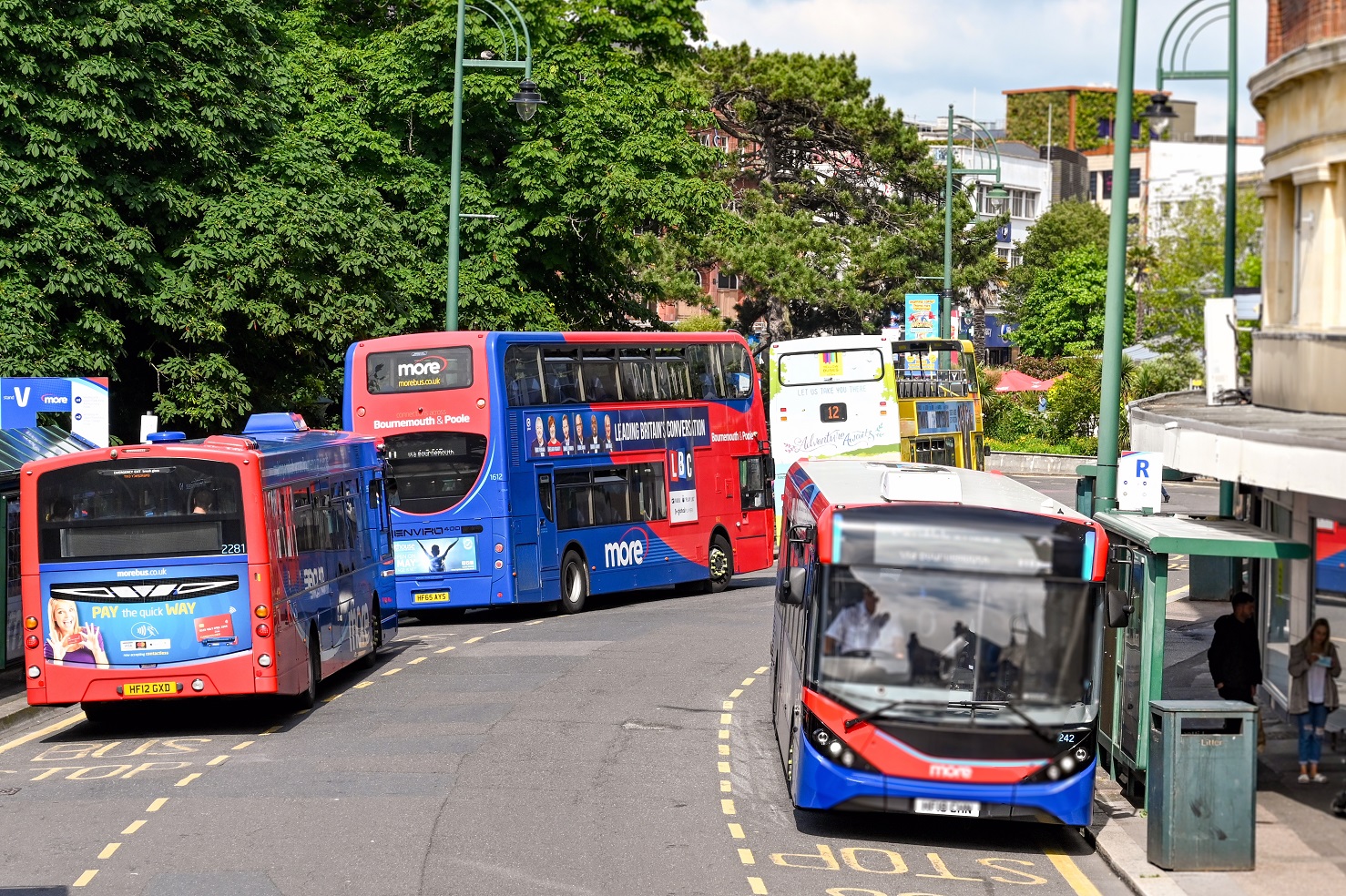The driver shortage is of critical relevance to most coach and bus operators, with many varied approaches already being explored in a bid to mitigate it. In 2022, the Chartered Institute of Logistics and Transport (CILT) in the UK found that 95% of such businesses were below driver establishment. CILT believes that collaboration beyond the boundaries of the sector is thus necessary to deal with what has become a business-limiting issue for many companies.
Well-known industry figure Austin Birks is Chair of CILT’s Bus and Coach Forum and its BusMark benchmarking scheme. He has extensive experience of driver recruitment dating back to time in the employ of operator Midland Red West in the days around deregulation, and later with First Bus. Austin is key to the Institute’s belief that lessons in recruitment can be learned from other areas.
Because of that, and leveraging CILT’s wider remit, contributions from relevant individuals both within and outside the industry will be published in routeone from February onwards. The Institute is engaging with people who can bring knowledge and new ideas to help mitigate the driver shortage, which is an issue that Austin says has come to dominate Bus and Coach Forum and BusMark discussions.

“It is first and foremost on any agenda,” he explains.
“In the past we had a large number of ‘nuts and bolts’ that kept the wheels of the sector turning, but that is no longer the case.
“What we do at Bus and Coach Forum meetings is open by asking for the bad news. It always comes back to the same thing for operators: A lack of drivers.”
Multiple driver shortage factor in play – and multiple solutions
Austin acknowledges that money, and the sums on offer in other industries, is part of the reason for that. But multiple other factors are in play, he continues. The UK’s departure from the European Union and the resulting decision of some migrant workers to return home is significant, but a major deficiency that is yet to be tackled is the difficulty in attracting young people, he believes.
Other considerations include a common failure to leverage the opportunity provided by former military personnel. CILT counts many serving representatives of the armed forces with transport and logistics experience among its members. It hopes to work with them and other bodies to further explore how resettlement of forces leavers can benefit coach and bus, an area highlighted in the findings from CILT’s 2022 survey on driver shortages as being potentially fruitful.
“I believe that there are some quite easy fixes to be found in that area,” Austin explains. “A closeness between CILT and the military has been established for many years and there is a lot more that we can do together in terms of that logic and thinking.”
Driving the industry’s public profile is something that CILT also believes can act as a recruitment tool. Austin points to media interest in the current £2 capped bus fare in England outside London as an example of how scope for press exposure exists, with other work involving coach and bus operators to highlight driver shortages having also generated coverage locally and nationally.
Both of those matters have seen senior representatives of operators small and large appear in the press. Austin notes that they came across well and presented the sector in a professional manner. The national media has also recently highlighted work in Bristol where university students drive buses part-time – a further potential avenue for talent.
Time for the sector to convey its message, says CILT

Leveraging the positives of the industry can capture its environmental strengths, Austin says.
He notes that young people are increasingly alive to climate change and that scope exists to bring more of those socially conscious individuals into the sector.
Presently, it is largely the case that “we don’t do anything in that space,” Austin believes. “We leave them alone and other businesses scoop them up. Young people are a fundamental area of society that requires some serious work by the industry, because we do ourselves no favours in not attracting them into what is an interesting job for someone that likes people.”
An important component there is promoting the career structure that can be followed by ambitious recruits. “It exists, and it can give a rewarding future if that is what the individual wants,” he continues. “But if we look at the industry from the outside, where is the promotion of that? There is virtually nothing out there. We have graduate training schemes from the larger bus groups, and engineering apprenticeship schemes, but beyond that there is little.”
Austin thus questions whether the sector is doing enough to attract school and college leavers. Some of that work could be carried out in collaboration with logistics businesses. Taking a nurturing approach is also key, he believes. A hard disciplinary line on mistakes will serve little purpose other than to cost the operator staff in a competitive market.
Solutions to driver shortage ‘are a work in progress’
Engagement with other sectors is key to what CILT hopes will eventually be a changed approach to the current 50km, local service restriction placed upon category D drivers that are under 20 years of age. Austin describes it as “a disconnect,” noting that it does not apply to category C licence holders of the same age.
“I understand the implications around risk and health and safety; there have been a small number of accidents due to immaturity. But those are exceptions to the rule, and we cannot let everything be defined by that.”

Austin’s position as Bus and Coach Forum Chair is that a conversation around the 50km rule is overdue.
He believes that such dialogue should involve the industry and its representative bodies, the Department for Transport (DfT), and those charged with monitoring and ensuring regulatory compliance.
In a further indication of what he sees as scope for external collaboration, input from the freight sector could also be sourced. “It is a work in progress. I am pushing it via CILT’s policy unit, and I am entirely behind removing the restriction. We are missing a trick by leaving it, letting it fester and not approaching it.”
That could arguably be said for much else that surrounds the coach and bus driver shortage. The only way it will realistically be solved, Austin argues, is via collaboration and new ideas. He hopes that CILT will be able to present many of those in 2023.
CILT driver shortage survey in 2022 delivered worrying stats
CILT’s survey on the driver shortage in 2022 delivered several worrying statistics for coach and bus. The work also captured members of the Institute’s LogMark scheme, which benchmarks freight operators. It provided a significant scope for comparison between the two sectors.

Shortages among HGV operators were found to be less pronounced than for PSV. 64% of LogMark respondents said they were experiencing that difficulty against 95% in the passenger sector.
Worryingly, the survey highlighted that between July 2021 and June 2022, 96% of coach and bus respondents had been unable to cover work due to a lack of drivers.
That chimed with findings by the Confederation of Passenger Transport. It discovered that some members had reduced their pool of work to match the available driver resource and that if such unfulfilled duties are included in calculations, the actual driver shortage is a lot worse than first thought.
Austin points at Generation Logistics as an approach that could be adopted by the passenger sector. That scheme was launched in 2022 and has received government funding in combination with support from within that industry. It promotes job opportunities and makes available online resources to help attract more people into the logistics field.
“I am banging the drum about something similar for coach and bus,” he says. “DfT has put money into Generation Logistics. I am understanding of freight having the first bite, but if Generation Logistics proves that it is a useful means to attract people into a career in that sector, then we should be on the back of it immediately.”



























